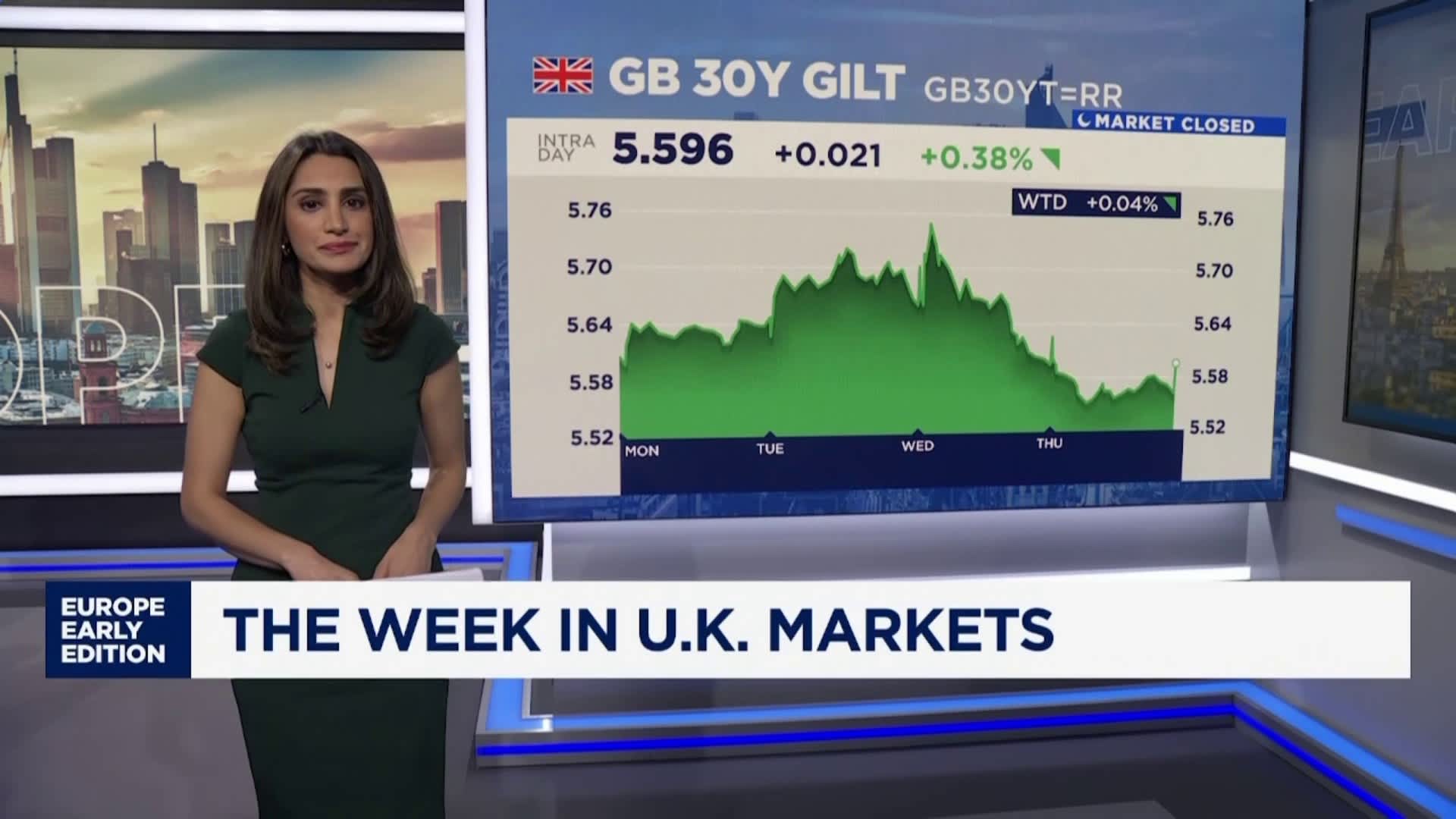Health
UK Long-Term Borrowing Costs Surge Ahead of Budget Announcement

The U.K. experienced significant financial turbulence this week, marked by long-term borrowing costs reaching a striking 27-year high. This development coincided with the announcement of Chancellor Rachel Reeves‘ Autumn Budget date, scheduled for November 26, 2023. Such financial pressures underscore the challenges facing the U.K. government as it navigates a complex economic landscape.
The increase in borrowing costs has raised concerns among investors and policymakers alike. According to data from the U.K. Debt Management Office, yields on 30-year government bonds soared to levels not seen since 1996. The spike in yields reflects growing apprehension about inflation and the potential for higher interest rates in the near future.
Analysts attribute the rise in borrowing costs to a combination of factors, including the Bank of England’s recent monetary policy decisions and ongoing inflationary pressures. In a statement, CNBC reporter Ritika Gupta noted that the market’s reaction indicates a lack of confidence in the government’s fiscal strategy, particularly in light of upcoming budgetary announcements.
Market Reaction and Economic Implications
The financial markets responded with volatility as investors reassessed their positions in light of the changing economic conditions. The increase in borrowing costs could have far-reaching implications for the U.K. economy, impacting everything from mortgage rates to government spending plans. Higher borrowing costs may lead to increased expenses for the government, which could constrain its ability to invest in public services and infrastructure.
In addition to the financial implications, the timing of the budget announcement adds another layer of complexity. As Chancellor Reeves prepares to unveil her plans, she faces pressure to address the rising cost of living and provide support for struggling households. The upcoming budget could be pivotal in determining how the government addresses these pressing challenges.
Future Outlook
Looking ahead, many observers anticipate that the government’s fiscal policies will come under intense scrutiny. The Autumn Budget is expected to outline key initiatives aimed at stabilizing the economy and restoring investor confidence. Analysts are particularly interested in how Chancellor Reeves plans to balance the need for fiscal responsibility with the urgent demands of the public.
As the U.K. approaches the budget date, the interplay between government policy and market dynamics will be closely monitored. The current economic climate poses significant challenges, and the decisions made in the coming weeks will play a crucial role in shaping the future of the U.K. economy. Investors and citizens alike will be watching as the Chancellor seeks to navigate these turbulent waters.
-

 Technology5 months ago
Technology5 months agoDiscover the Top 10 Calorie Counting Apps of 2025
-

 Technology3 weeks ago
Technology3 weeks agoOpenAI to Implement Age Verification for ChatGPT by December 2025
-

 Health3 months ago
Health3 months agoBella Hadid Shares Health Update After Treatment for Lyme Disease
-

 Health4 months ago
Health4 months agoAnalysts Project Stronger Growth for Apple’s iPhone 17 Lineup
-

 Health4 months ago
Health4 months agoErin Bates Shares Recovery Update Following Sepsis Complications
-

 Technology5 months ago
Technology5 months agoDiscover How to Reverse Image Search Using ChatGPT Effortlessly
-

 Technology3 months ago
Technology3 months agoElectric Moto Influencer Surronster Arrested in Tijuana
-

 Technology5 months ago
Technology5 months agoMeta Initiates $60B AI Data Center Expansion, Starting in Ohio
-

 Technology2 months ago
Technology2 months agoDiscover 2025’s Top GPUs for Exceptional 4K Gaming Performance
-

 Technology5 months ago
Technology5 months agoRecovering a Suspended TikTok Account: A Step-by-Step Guide
-

 Health5 months ago
Health5 months agoTested: Rab Firewall Mountain Jacket Survives Harsh Conditions
-

 Lifestyle5 months ago
Lifestyle5 months agoBelton Family Reunites After Daughter Survives Hill Country Floods





















